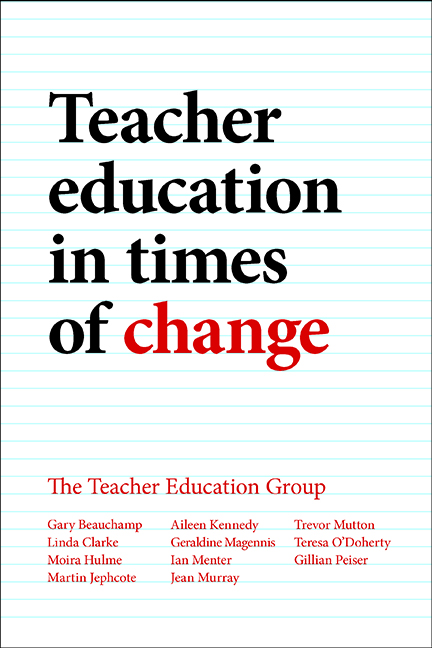Book contents
three - Analysing teacher education policy: comparative and historical approaches
Published online by Cambridge University Press: 23 August 2022
Summary
Introduction
In the past decade, as we have seen in the previous two chapters, teacher education has assumed greater significance in global education policy (OECD, 2011a, 2011b; Asia Society, 2013; World Bank, 2013). Strategies to improve education outcomes have increasingly focused on improving teachers’ learning, leading to national reviews of teacher education. A repertoire of global reforms has sought to increase control over teachers’ work and performance while simultaneously emphasising teachers’ knowledge and discretion (Tatto, 2007). International organisations and global policy entrepreneurs have promoted a degree of convergence around certain core themes:
• the quality of entrants;
• practicum enhancement;
• the imperative of career-long teacher learning;
• school leadership;
• the use of evidence, including research, to inform improvement.
Critical scrutiny of teacher education is not new. Recent debate connects with longstanding deliberation on the knowledge bases, content and control of teacher education, the location of professional preparation and the status of personnel involved in this complex enterprise.
It is important to establish the provenance of policy ideas in education and how they are transformed as they migrate. Moving beyond a ‘transfer’ paradigm, an alternative approach invites interrogation of the ‘homeless terms’ that populate global education policy (Popkewitz, 2013a, p 6). Thus, for example, we see how critical analysis of policy requires interrogation of seemingly transcendent and ahistorical ideas that are presented as lessons derived from comparison. Procedures for competitive comparison are supported by a renewed enthusiasm for evidence-based education and what some have called ‘improvement science’. Supranational policy texts work to universalise (and normalise) particular readings of the qualities and characteristics of the ‘effective teacher’ and models of teacher education that ‘work’. Working against the grain requires reflexive engagement with the analytical categories and units of comparison deployed in research for policy (Sobe, 2013a). It is important to ask how policy moves make possible particular understandings of ‘teacher quality’, and how these are linked with constructions of the future citizen, the educated person and a just society.
Throughout this book we consider how ‘travelling policy’ is recontextualised within local sites of influence (Jones and Alexiadou, 2001; Seddon and Levin, 2013).
- Type
- Chapter
- Information
- Teacher Education in Times of ChangeResponding to challenges across the UK and Ireland, pp. 37 - 54Publisher: Bristol University PressPrint publication year: 2015

